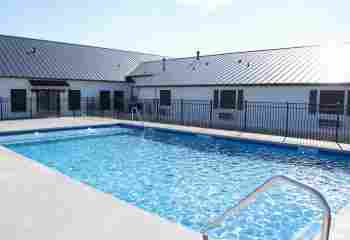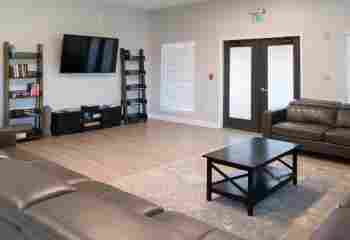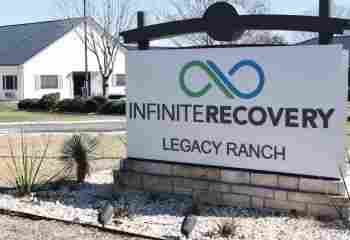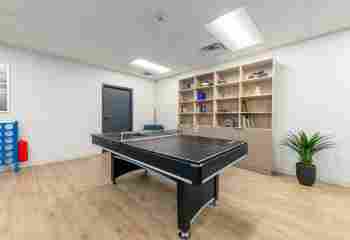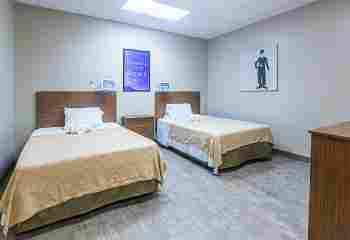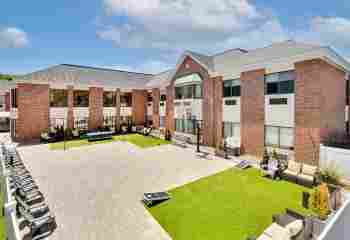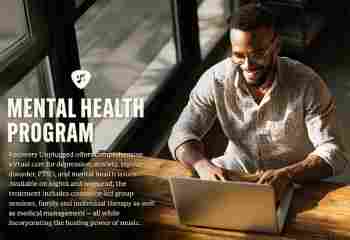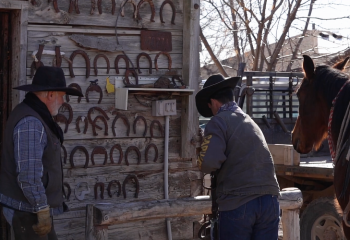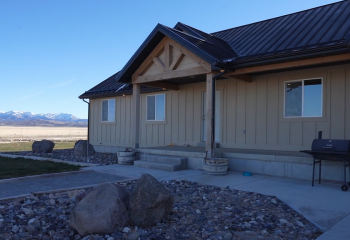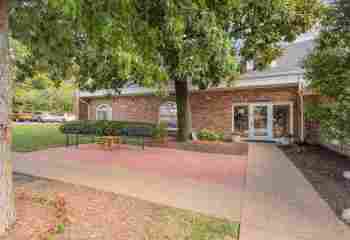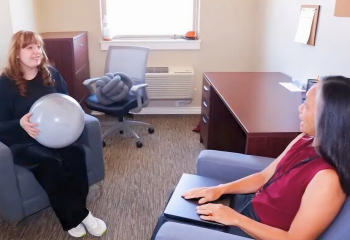More About Drug Addiction Treatment Centers
Millions of people worldwide are affected by Substance Use Disorder (SUD), a widespread issue that impacts individuals, families, and communities.
Choosing to find help for addiction is one of the most important steps you can take. While there are several things to consider when choosing treatment, finding the right rehab center tailored to your needs can make a significant difference in your recovery journey.
Our guide will help you better understand addiction and treatment options so you can find the best rehab that fits your needs.
We’ll cover types of substances and addictions treated at rehabs (including alcohol, opioids, and other drugs), as well as different levels of care (like detox, residential, outpatient treatment programs). We’ll also discuss the importance of dual diagnosis treatment for individuals dealing with both substance use and mental health concerns.
Choosing the Right Rehab
The first step to recovery is deciding to go to rehab. Once you make that choice, it’s important to find a rehab center that fits your unique needs.
Below are some key factors to consider when choosing a rehab to treat your addiction.
Types of Substance Addiction
While some rehabs specialize in treating specific substances, most rehab centers are able to treat addiction to a wide range of substances. Some of the most common substances treated in rehab include:
- Alcohol
- Benzodiazepines
- Cocaine
- Heroin
- Marijuana
- Methamphetamine
- Opioids
- Prescription Drugs
Additionally, two-thirds of individuals struggling with addiction, also have co-occurring mental health needs that are typically treated alongside the substance use.
Addiction Treatment Options
Substance use disorders (SUD), like alcohol use or drug addiction, often involve multiple levels of care for treatment. Each level of care is a different degree of treatment and the best starting point to recovery depends on the severity of your substance use, co-occurring conditions and treatment history.
Below are some of the more common levels of care for treating addiction:
Detox Centers
Detox is a medically supervised process to help you safely manage withdrawal symptoms. This first step in treatment for addiction typically lasts 3 to 7 days. Detox is essential for many people, particularly with alcohol, opiates and benzodiazepines dependence.
Residential Rehab
Residential rehab works best for someone seeking 24/7 support to focus on long-lasting recovery. You’ll live in a rehab for 28+ days and engage in treatment with a comprehensive staff and a community of peers.
Intensive Outpatient Programs
A type of outpatient program (sometimes referred to as PHP and IOP) that offers more flexibility to those who need structure support but do not need 24/7 care. IOPs typically last 3 to 6 months. You’ll live at home (or a sober living) and go to treatment 3-5 days a week, for a few hours a day.
Outpatient Treatment
Outpatient treatment works best for individuals who need an option that allows them to maintain daily obligations or for continued support for individuals stepping down from residential care. Treatment often takes place during the evening, but there are day programs as well.
Sober Living
Sober living homes keep you connected to others in sobriety. You live in these safe, structured homes as you adjust to life outside treatment. You can attend day treatment and IOP in sober living.
Treating Dual Diagnosis
Dual Diagnosis, also known as co-occurring disorders is the presence of mental health disorders that accompany substance use disorders. Approximately 50% of people with substance use disorders have dual diagnoses.
Common mental health conditions you might experience along with addiction include:
- Anxiety Disorders
- Attention-Deficit/Hyperactivity Disorder (ADHD)
- Bipolar Disorder
- Chronic Pain
- Depression
- Eating Disorders
- Personality Disorders
- Post Traumatic Stress Disorder (PTSD)
- Sleep Disorders
If you’re dealing with any of these mental health issues along with your addiction, it’s important that you find dual diagnosis treatment.
Understanding Addiction
Substance Use Disorder (SUD) is a medical condition defined as the uncontrolled use of a substance despite its harmful consequences to you, your loved ones, and your community.
While SUD is complex, it can be treated. Below we’ll walk you through signs and symptoms of drug and alcohol addiction, how addiction affects your body, and how to determine when you need treatment.
Signs and Symptoms of Drug Addiction
Drug addiction is when you feel like you can’t stop using a drug, even though you know it’s hurting your body, your mind, and sometimes your relationships. Drugs change how your brain works, making you experience cravings and feelings of sickness when you go without them.
Here are some signs to look out for if you’re unsure or suspect you might have a drug addiction:
- Unable to go a day without using
- Experience withdrawal symptoms when you’re not using
- Constantly worry about where and when you’ll get your next dose.
- Find more pleasure in using than in activities you once enjoyed.
- Hiding or being dishonest about your drug use
The Effects of Drug Addiction
Drug addiction can have a lasting, destructive impact on your brain and physical health. Not only that, but the recent rise in fentanyl and other highly potent substances makes the risk of an overdose even greater. And the more drugs you use, the greater your tolerance will become, leading to higher doses and an increased risk of an overdose.
Drug addiction can also affect your relationships and social life. You may lose friendships and ties with your family if your addiction has unintentionally become more important.
When You Need Drug Rehab
You’ll know your drug use has turned into an addiction when you feel physically dependent on it to stay well. For example, if you’re addicted to opioids and stop using them, you’ll soon need to take more just to avoid the arduous withdrawals . Addiction also includes cravings. Even if you don’t feel sick from withdrawals, you may still feel a deep need, or craving, for the drug you take.
Signs and Symptoms of Alcohol Addiction
Alcohol is a common substance used in many societies and cultures around the world. However, drinking too much and not responsibly can lead to addiction, bad behaviors, and problems for you and those close to you. Some signs of alcohol addiction include:
- Having cravings and an intense desire to drink
- Experiencing withdrawal symptoms like shaking, sweating, or anxiety when not drinking
- Blackouts or not being able to remember events when drinking
- Being unable to stop drinking until you’re drunk
- Using alcohol to cope with stress, anxiety, depression, or other emotional problems
- Facing legal or financial issues due to alcohol consumption
The Effects of Alcohol Use
Drinking too much, whether in one setting or over time, can take a detrimental toll on your physical and mental health. It is well known and research backed that alcohol has damaging effects on your organs, affecting:
The Brain - Alcohol impacts the brain’s communication pathways, the way it looks, and how it functions. These changes can affect your mood and behavior.
The Heart - Drinking can damage the heart, causing stretching or drooping of the heart muscle, irregular heartbeats or high blood pressure.
The Liver - Drinking can lead to a variety of liver problems, including difficulties detoxing, fatty liver and cirrhosis.
Immune System - Drinking too much can weaken your immune system, slowing down your body’s ability to fight colds, infections and disease.
While some people may feel happier and pleasantly disinhibited with moderate alcohol consumption, regular, heavy drinking can lead to symptoms of depression, anxiety, psychosis, or self-harm. However, everyone’s response to alcohol may be different, so it’s essential to pay attention to how you feel mentally and emotionally when drinking alcohol.
When You Need Alcohol Rehab
Addiction to alcohol requires proper treatment in order to recover. Recognizing your compulsive alcohol use, loss of control around drinking, or your inability to cope without it are vital steps to getting help. If you’re starting to question your relationship with alcohol, then it may be a sign that you have a problem.
Helping Someone With Addiction
The decision to get treatment isn’t yours to make. Your loved one must have that desire themselves. But you can support them along the way.
One way you can help is by verbally offering your support, a listening ear, and compassion. For example, your loved one may ask you to help them find a good treatment center. You can work through that process together. Your support may give them the final push they need to get help.
If you’re comfortable, you can be straightforward and ask if your loved one has an addiction. Stay non-judgemental if you take this route. Though you don’t support their addiction, you’ll want to make it clear you do support them and their recovery. Staying non-judgemental and non-condemning can open them up to the idea of treatment.

































